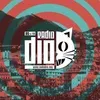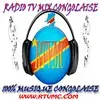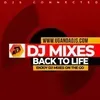Rumba Live Radio Stations
Radio Stations
Choose a Genre
Rumba: The Heartbeat of Africa’s Musical Soul
Rumba is more than just a music genre; it is the pulse of Central Africa, a captivating blend of complex rhythms, soulful melodies, and evocative lyrics that have captured the hearts of millions worldwide. Originating in the Democratic Republic of Congo (DRC), Rumba has become a cornerstone of African culture, influencing not only the continent’s music scene but also making waves internationally. With its distinctive guitar-driven sound and deep emotional resonance, Rumba reflects the joys and hardships of everyday life while celebrating the rich cultural heritage of the African people.
The Origins and Evolution of Rumba
Rumba has its roots deeply embedded in the traditional music of the Congo, but over the years, it has evolved into a fusion of African rhythms, Latin American music, and jazz. The genre gained popularity in the early 20th century, especially during the colonial period, when it began to incorporate Latin American influences, such as Cuban rhythms. This cross-cultural blend resulted in a unique sound that resonated with people both in Africa and beyond.
The genre is known for its intricate guitar work, smooth melodies, and rhythms that can be both relaxing and energizing. Rumba music’s lyrics often touch on a variety of themes, from love and romance to social and political issues, giving it an enduring appeal across generations. Today, it continues to evolve, with contemporary artists experimenting with new sounds while maintaining its distinctive, soulful essence.
Rumba Radio Stations: The Voice of Congolese and African Culture
Rumba music is an integral part of the Congolese and broader African cultural identity, and radio stations dedicated to this genre play a crucial role in its promotion. These stations are not only platforms for music but also spaces for conversation, reflection, and cultural exchange. Through their broadcasts, they give voice to local artists, provide news and commentary on social issues, and contribute to the preservation of a rich musical tradition.
One of the most prominent Rumba radio stations in the DRC is Radio Okapi, a station run by the United Nations. Radio Okapi has become a leading platform for Congolese music, providing an outlet for both well-known and emerging artists. The station features a mix of music, talk shows, and interviews with prominent figures in the DRC's cultural and political landscape, helping to raise awareness about the issues facing the country while celebrating its musical heritage.
Other influential Rumba radio stations include Radio Africa, Radio Congo, and Radio TV5, which continue to play a pivotal role in the global spread of Rumba music. These stations feature a mix of local and international artists, along with talk shows and cultural programming that explore the diverse concerns of African listeners. Live performances, interviews, and music premieres also give audiences a chance to engage with the music and personalities they love.
Rumba's Iconic Artists and Global Impact
The success of Rumba music can be attributed to the remarkable artists who have shaped the genre over the decades. Legendary musicians such as Franco Luambo, Tabu Ley Rochereau, and Papa Wemba are often regarded as the pillars of Rumba. Their music transcended borders, with songs that spoke to universal themes of love, hardship, and hope, all while carrying the essence of the Congo’s musical soul.
Franco Luambo is often considered the most influential Rumba artist of all time. His band, TPOK Jazz, was one of the most famous and successful in Africa, producing timeless hits that continue to inspire generations of musicians. Tabu Ley Rochereau, known for his exceptional vocal talent and sophisticated arrangements, was another driving force behind the evolution of Rumba, influencing artists across the African continent. Papa Wemba, one of the genre’s most celebrated performers, brought Rumba into the global spotlight, blending it with modern influences and pushing its boundaries.
These artists were not just musicians but social commentators, using their platforms to address the political and social challenges facing their communities. Rumba, as a genre, became a medium for storytelling, reflecting the dreams and struggles of ordinary people. Through their work, they helped shape the identity of not just Congolese music but African music as a whole.
Rumba's Cultural Influence and Dance
Rumba is more than just a listening experience—it is also a vibrant, expressive form of dance. The intricate rhythms of the music inspire various styles of dance, often characterized by slow, flowing movements, with dancers expressing deep emotion through their gestures. The dance culture surrounding Rumba is an essential part of the genre’s appeal, with its influences felt not just in Congo, but across the African continent and the world.
Rumba’s rich rhythms and melodies have inspired countless young dancers, and the genre has become synonymous with celebration and community. Across Africa, people gather to dance to Rumba, using the music as a way to connect with others and express joy, passion, and unity.
Rumba: A Global Phenomenon
While Rumba's origins are firmly rooted in the DRC, its influence has spread far beyond the African continent. Today, Rumba enjoys a dedicated following not only in Africa but in Europe, the Americas, and beyond. Its fusion of African rhythms and Western styles has made it a genre that resonates with global audiences. In fact, many African diaspora communities in Europe and North America continue to celebrate Rumba, keeping the genre alive and ensuring its relevance in the 21st century.
Rumba’s global appeal can also be attributed to its versatility, as contemporary artists have continued to innovate and merge it with other genres, such as hip hop and reggae, while retaining its African core. This adaptability has helped Rumba music remain fresh and relevant, reaching listeners from different cultural backgrounds while preserving its distinct Congolese identity.
Conclusion: Rumba, the Sound of Africa’s Soul
Rumba is not just a musical genre—it is a symbol of African resilience, creativity, and cultural pride. From its origins in the Democratic Republic of Congo to its widespread popularity across the globe, Rumba continues to touch hearts with its captivating rhythms, soulful melodies, and meaningful lyrics. The genre reflects the highs and lows of life, celebrating both the beauty and the struggles of the human experience.
Rumba radio stations play an essential role in keeping the genre alive, offering a platform for artists to reach audiences and for listeners to stay connected to their cultural roots. As Rumba music continues to evolve and inspire, it remains a vital part of Africa's musical heritage, forever resonating with the stories and dreams of its people.
Rumba is more than just a music genre; it is the pulse of Central Africa, a captivating blend of complex rhythms, soulful melodies, and evocative lyrics that have captured the hearts of millions worldwide. Originating in the Democratic Republic of Congo (DRC), Rumba has become a cornerstone of African culture, influencing not only the continent’s music scene but also making waves internationally. With its distinctive guitar-driven sound and deep emotional resonance, Rumba reflects the joys and hardships of everyday life while celebrating the rich cultural heritage of the African people.
The Origins and Evolution of Rumba
Rumba has its roots deeply embedded in the traditional music of the Congo, but over the years, it has evolved into a fusion of African rhythms, Latin American music, and jazz. The genre gained popularity in the early 20th century, especially during the colonial period, when it began to incorporate Latin American influences, such as Cuban rhythms. This cross-cultural blend resulted in a unique sound that resonated with people both in Africa and beyond.
The genre is known for its intricate guitar work, smooth melodies, and rhythms that can be both relaxing and energizing. Rumba music’s lyrics often touch on a variety of themes, from love and romance to social and political issues, giving it an enduring appeal across generations. Today, it continues to evolve, with contemporary artists experimenting with new sounds while maintaining its distinctive, soulful essence.
Rumba Radio Stations: The Voice of Congolese and African Culture
Rumba music is an integral part of the Congolese and broader African cultural identity, and radio stations dedicated to this genre play a crucial role in its promotion. These stations are not only platforms for music but also spaces for conversation, reflection, and cultural exchange. Through their broadcasts, they give voice to local artists, provide news and commentary on social issues, and contribute to the preservation of a rich musical tradition.
One of the most prominent Rumba radio stations in the DRC is Radio Okapi, a station run by the United Nations. Radio Okapi has become a leading platform for Congolese music, providing an outlet for both well-known and emerging artists. The station features a mix of music, talk shows, and interviews with prominent figures in the DRC's cultural and political landscape, helping to raise awareness about the issues facing the country while celebrating its musical heritage.
Other influential Rumba radio stations include Radio Africa, Radio Congo, and Radio TV5, which continue to play a pivotal role in the global spread of Rumba music. These stations feature a mix of local and international artists, along with talk shows and cultural programming that explore the diverse concerns of African listeners. Live performances, interviews, and music premieres also give audiences a chance to engage with the music and personalities they love.
Rumba's Iconic Artists and Global Impact
The success of Rumba music can be attributed to the remarkable artists who have shaped the genre over the decades. Legendary musicians such as Franco Luambo, Tabu Ley Rochereau, and Papa Wemba are often regarded as the pillars of Rumba. Their music transcended borders, with songs that spoke to universal themes of love, hardship, and hope, all while carrying the essence of the Congo’s musical soul.
Franco Luambo is often considered the most influential Rumba artist of all time. His band, TPOK Jazz, was one of the most famous and successful in Africa, producing timeless hits that continue to inspire generations of musicians. Tabu Ley Rochereau, known for his exceptional vocal talent and sophisticated arrangements, was another driving force behind the evolution of Rumba, influencing artists across the African continent. Papa Wemba, one of the genre’s most celebrated performers, brought Rumba into the global spotlight, blending it with modern influences and pushing its boundaries.
These artists were not just musicians but social commentators, using their platforms to address the political and social challenges facing their communities. Rumba, as a genre, became a medium for storytelling, reflecting the dreams and struggles of ordinary people. Through their work, they helped shape the identity of not just Congolese music but African music as a whole.
Rumba's Cultural Influence and Dance
Rumba is more than just a listening experience—it is also a vibrant, expressive form of dance. The intricate rhythms of the music inspire various styles of dance, often characterized by slow, flowing movements, with dancers expressing deep emotion through their gestures. The dance culture surrounding Rumba is an essential part of the genre’s appeal, with its influences felt not just in Congo, but across the African continent and the world.
Rumba’s rich rhythms and melodies have inspired countless young dancers, and the genre has become synonymous with celebration and community. Across Africa, people gather to dance to Rumba, using the music as a way to connect with others and express joy, passion, and unity.
Rumba: A Global Phenomenon
While Rumba's origins are firmly rooted in the DRC, its influence has spread far beyond the African continent. Today, Rumba enjoys a dedicated following not only in Africa but in Europe, the Americas, and beyond. Its fusion of African rhythms and Western styles has made it a genre that resonates with global audiences. In fact, many African diaspora communities in Europe and North America continue to celebrate Rumba, keeping the genre alive and ensuring its relevance in the 21st century.
Rumba’s global appeal can also be attributed to its versatility, as contemporary artists have continued to innovate and merge it with other genres, such as hip hop and reggae, while retaining its African core. This adaptability has helped Rumba music remain fresh and relevant, reaching listeners from different cultural backgrounds while preserving its distinct Congolese identity.
Conclusion: Rumba, the Sound of Africa’s Soul
Rumba is not just a musical genre—it is a symbol of African resilience, creativity, and cultural pride. From its origins in the Democratic Republic of Congo to its widespread popularity across the globe, Rumba continues to touch hearts with its captivating rhythms, soulful melodies, and meaningful lyrics. The genre reflects the highs and lows of life, celebrating both the beauty and the struggles of the human experience.
Rumba radio stations play an essential role in keeping the genre alive, offering a platform for artists to reach audiences and for listeners to stay connected to their cultural roots. As Rumba music continues to evolve and inspire, it remains a vital part of Africa's musical heritage, forever resonating with the stories and dreams of its people.




